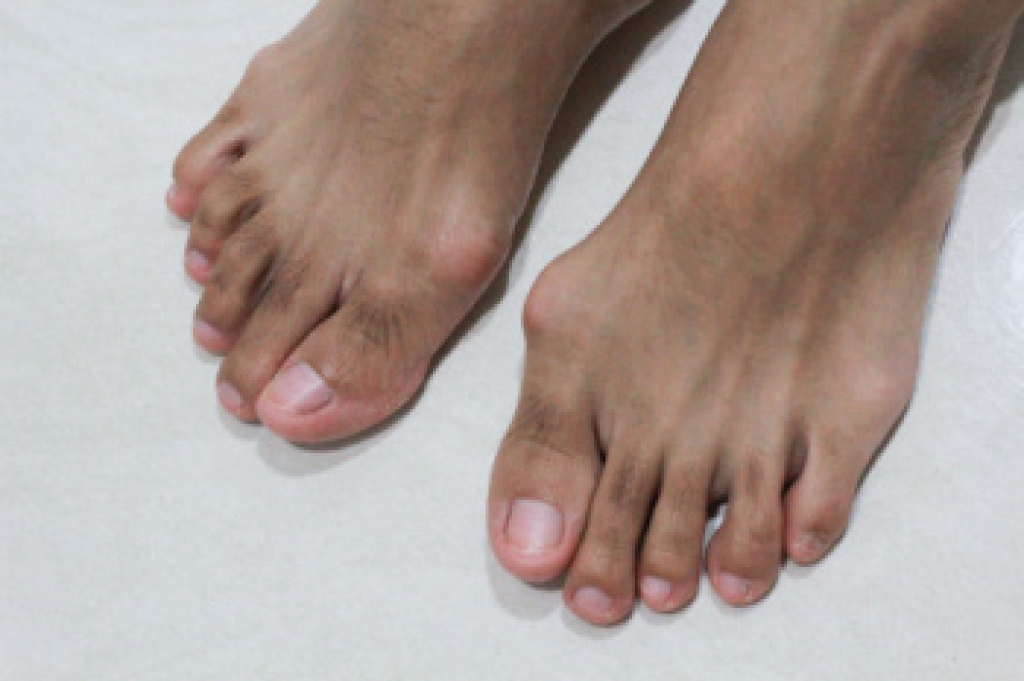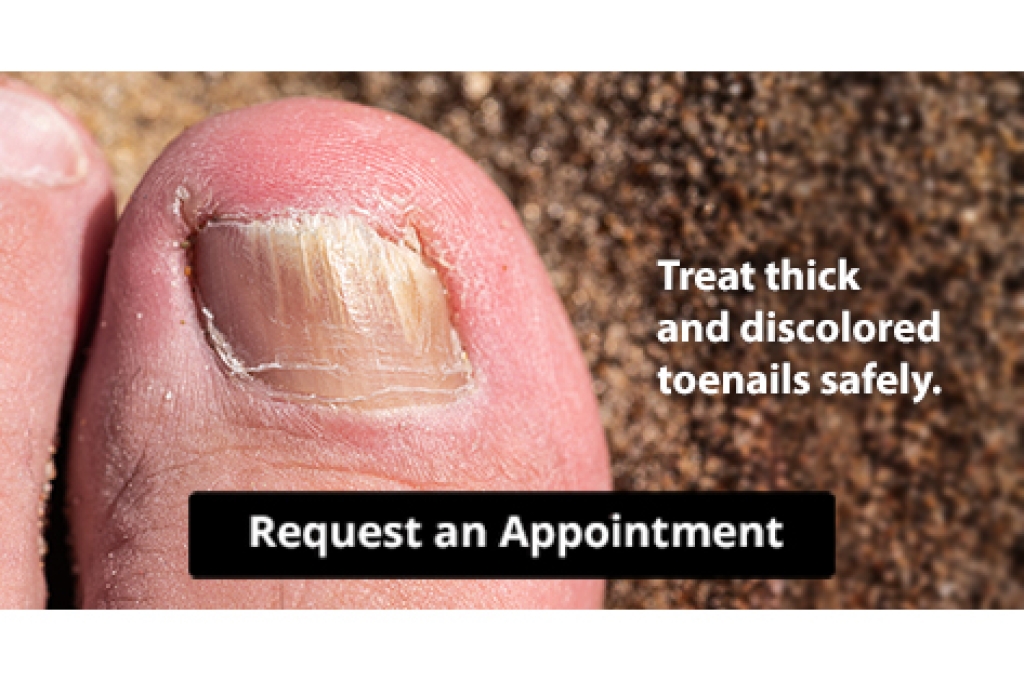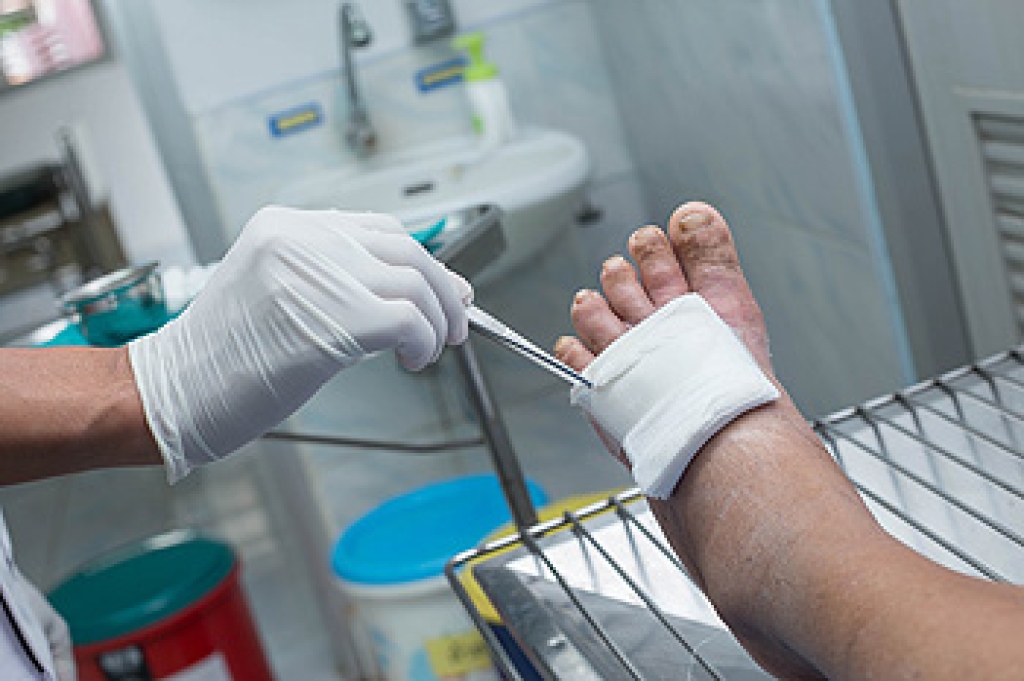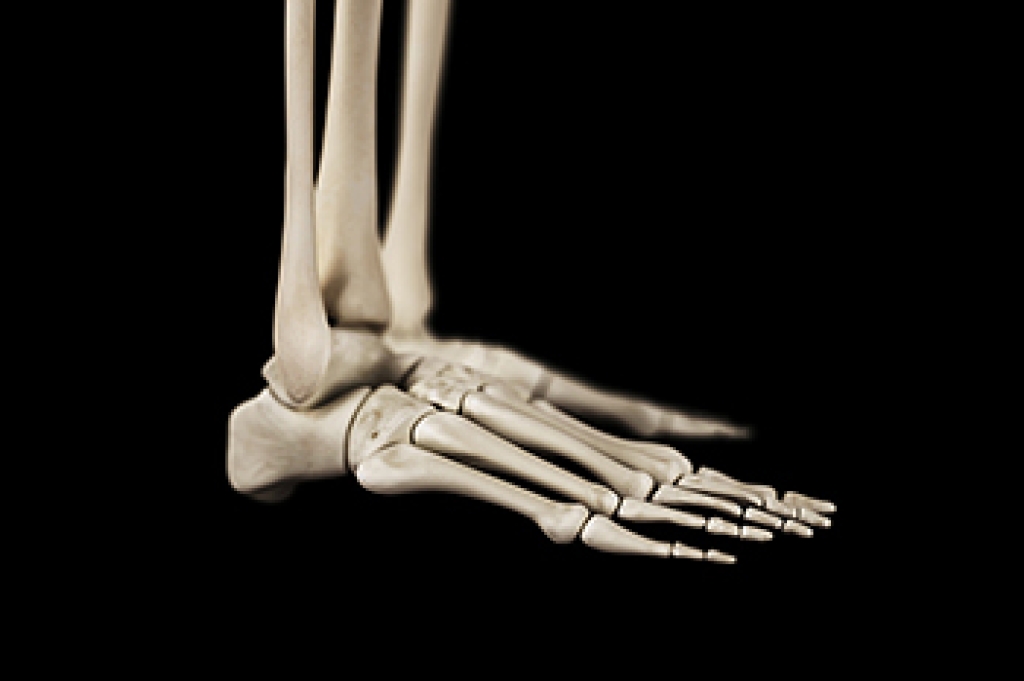
A bunion develops when the bones and soft tissues around the big toe joint slowly lose their normal alignment and stability. The process often begins when the small supporting bones and ligaments beneath the joint weaken and no longer hold the toe in its proper position. As this support breaks down, the base of the big toe starts to shift outward, forming a bump, while the top of the big toe angles toward the second toe. This causes the tendons that help bend and straighten the big toe to be pulled out of place, which increases the sideways drift of the toe. A muscle along the outside of the foot then pulls the big toe into a twisted position, making the joint unstable. Over time, the joint rotates and becomes loose, leading to a visibly angled big toe and the prominent bump seen with a bunion. If you have a painful bunion, it is suggested that you make an appointment with a podiatrist for help.
If you are suffering from bunion pain, contact Bryan Sullivan, DPM of Mississippi Foot Center . Our doctor can provide the care you need to keep you pain-free and on your feet.
What Is a Bunion?
Bunions are painful bony bumps that usually develop on the inside of the foot at the joint of the big toe. As the deformity increases over time, it may become painful to walk and wear shoes. Women are more likely to exacerbate existing bunions since they often wear tight, narrow shoes that shift their toes together. Bunion pain can be relieved by wearing wider shoes with enough room for the toes.
Causes
- Genetics – some people inherit feet that are more prone to bunion development
- Inflammatory Conditions - rheumatoid arthritis and polio may cause bunion development
Symptoms
- Redness and inflammation
- Pain and tenderness
- Callus or corns on the bump
- Restricted motion in the big toe
In order to diagnose your bunion, your podiatrist may ask about your medical history, symptoms, and general health. Your doctor might also order an x-ray to take a closer look at your feet. Nonsurgical treatment options include orthotics, padding, icing, changes in footwear, and medication. If nonsurgical treatments don’t alleviate your bunion pain, surgery may be necessary.
If you have any questions, please feel free to contact our office located in Jackson, MS . We offer the newest diagnostic and treatment technologies for all your foot care needs.




